Top 8 Best Fish to eat
Top 8 Best fish to eat
1. The American Red Snapper
The American red snapper has lower mercury and a really rich nutty flavor, is particularly sweet, has mild flesh with a light bite, and can be highly recommended to seafood lovers. It can be baked, grilled, pan-fried, or broiled. The flesh contains selenium (supports thyroid health and develops white blood cells in the body), Omega3 fatty acids (supports heart health), and high potassium levels (cures osteoporosis and bone health).
They have an extremely beautiful deep red rosy color. They are hard-tackled when caught. The weight of an average adult is 3 to 5 pounds but it can reach 50 pounds and up to 40 inches long. You can target this fish in the Gulf of Mexico in June and July and on the eastern coast of North America deep at 30 to 620 feet.
2. The Sunfish
The sunfish family considers low mercury fish and they have sweet, mild flesh and a light bite that flavors really great and does not feel fishy, and can be cooked well with any kind of spices. They are tricky to catch but do not fight on the reel until they get bigger. Northern Minnesota lakes from mid-April to mid-May are the best time for walleye fishing and are found from 6 to 20 feet range can attain 16 pounds with up to a maximum of 24-26 inches in length. Its flesh is a good source of vitamin D and omega 3 fatty acids, good for a healthy heart, and vitamin D for strong bones.
Black Crappies
Northern Minnesota crappies taste different than the crappies down here in the southern states. It may be because of what they are eating.
3. Tuna
4. Salmon
Salmon is to a high degree popular due to weight loss and healthy heart properties. They are the best source of high protein and low fat and calories and boost your heart and brain health and are lower in mercury.
Salmon are indigenous to the North Atlantic and the Pacific Ocean. They hatch in the freshwater and then move to the ocean. They spend their lives in both salt and fresh water, among the five most common species.
King Salmon/Chinook is well-known for its best flavor. They reach over 100 pounds and are huge for the Pacific Ocean. They range from deep red to white in color and have a high-fat content.
Silver Salmon/Coho red flesh is less fishy and has the same flavor as Chinook but is slightly more delicate, also known as Russian Salmon, and usually weighs 8 to 13 pounds, a great pick for cooking whole and is best for grilling and BBQ.
Pink Salmon/Humpback low-fat content, most commonly Pacific salmon-flavored light-colored flesh. Pink Salmon/Humpback is a light color with flavored mild flesh and low-fat content.
Red Salmon/Sockeye Salmon is bright orange-red flesh with a strong, super, less fishy flavor often used in Japanese sushi dishes best for grilling, burgers, and fillets.
Chum/dog Salmon have dog-like teeth with pale to medium red flesh, the relatively smallest size sold frozen and in canned for foreign markets.
5. Halibut
Halibut, native to the North Pacific Oceans and the common name of three flatfish, can be caught in deep cold water. They are bottom feeders and need heavy tackle to catch.
Giant Alaskan Halibut
The Alaskan Halibut reaches the max weight of 500 pounds,
The Pacific Halibut reaches a maximum of 450 pounds,
6. Trout
Salmon and trout are closely related and both are great equal option difference between salmon and trout is that salmon spend their lives in salt and fresh water whereas trout spend their lives in freshwater
Both are good sources of omega-3 fatty acids and vitamins and are best for grilling and fillet. They are a little bit higher in mercury and should not be consumed more than four to five times a month.
Among four common species of trout, lake trout reach a max of 40 pounds.
7. King Mackerel
The Subcontinent Surmai is the name given to King Mackerel.
King mackerel from the Western Atlantic and Gulf of Mexico has a high mercury content,
King Mackerel Gulf of Mexico
while Alaskan Alka mackerel has a low mercury content.
If you remove the bloodline from a King Mackerel, the flesh will not be very flavorful. You simply grill it after seasoning it with lemon pepper, garlic salt, and olive oil. You should eat it fresh, fried, grilled, or low-temperature smoked because if you leave that bloodline in it and freeze it, you will lose its wonderful taste.
Its flesh is a fantastic protein source. Boosting your heart health with vitamins B2, B3, B6, B12, and D and Omega 3 fatty acids
8. Mahi
Mahi is a tropical fish.
Its flesh looks pinkish but turns white when cooked semi-mild and blends sweetness with citrus.
Mahi is not a fishy flavor best for fillets and steaks.
It contains low to medium mercury levels. It is a great source of Omega3 fatty acids is high in Proteins, vitamins D and A, and Selenium, and has few calories.




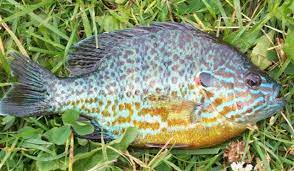



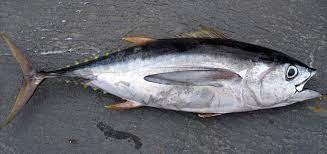


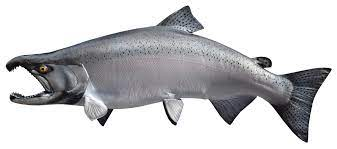






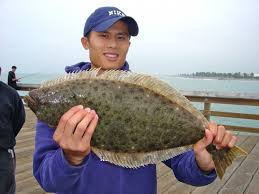




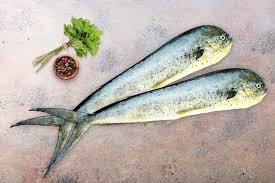



Comments
Post a Comment